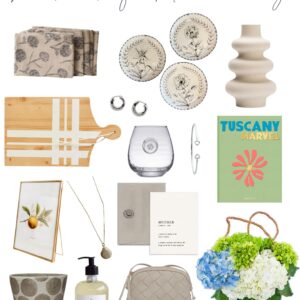One of my favorite things to do during late spring is get my garden started. We love growing our own tomatoes, peppers, fennel and herbs that we can enjoy throughout the summer. I’ll be the first to admit I don’t have a green thumb, but I have learned a lot along the way. This is our third year planting a vegetable garden so I’ve definitely learned from trial and error. If you’re thinking about planting a summer garden here are some helpful tips for your garden.

Tips for a Summer Garden
Like I said, I really don’t have a green thumb for gardening but I think you’ll find these tips helpful. Most importantly have fun, don’t be disappointed if animals eat your veggies, and be patient.
1. Use Good Soil
We bought organic soil this year, and I can tell it’s made a huge difference in our garden. Investing in quality soil that has a lot of nutrients is key for having your veggies or flowers grow. Trust me good soil is the best thing you can do for your garden, so it’s worth the extra money to get some quality soil.

2. Pick Your Plants
I love shopping for my veggie plants at Ludema’s here in Grand Rapids, MI. Their plants always do really well in our garden. I typically pick plants based on what Cory and I will eat, and what does well in our garden. This year I have a variety of tomatoes, bell peppers, jalapeños, sweet peppers, sweet peas, onion, zucchini, fennel, and basil. Again, pick vegetable plants that will do well in your garden area (sunlight vs. shade), and veggies that you’ll actually eat.
3. Let There Be Sun
Wherever you decide to plant your garden make sure it gets plenty of sunlight. Our tomatoes do really well in lots of sun so we make sure to plant these in a sunny area. When you decide to plant your garden I would suggest doing a little research to see how much sunlight some of your plants need.
4. Water Every Day
I water my garden every day to ensure the plants are getting enough water. You really have to keep up on watering so the plants don’t die. I set a reminder in my phone to get out and water my garden. It only takes ten minutes to water, and it makes a huge difference.

5. Start Small
If you’re starting a garden for the first time keep it small. You’ll learn what works best and what doesn’t for your garden space the first time around. When I first started my vegetable garden I did a few tomato plants on the side of our house. Our garden has grown a lot, but that’s because we learned what plants thrive and which ones don’t do as well.
6. Use Plant Food
I started using plant food on my flowers and vegetable garden this year, and have seen really great results so far. This is obviously optional, but plant food can really help your plants to thrive in your garden.
Do you have a garden this summer? Check out The GR Guide Summer Issue for more fun summer content!











Leave a Reply
You must be logged in to post a comment.